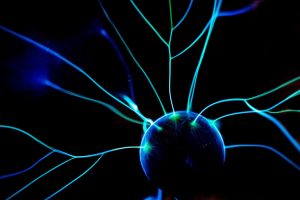NEW research has revealed interesting and beneficial facts about our memory retention.
Research conducted by the University of Glasgow and the University of Birmingham has been published today in Nature Communications.
The study shows that our memories become less vibrant and detailed over time and we only retain the main gist.

The research has revealed that our memory becomes less vibrant.
Remembering is a highly reconstructive process, we do not remember exact details, experts have suggested that parts of our memory could change each time we rethink them.
The exact details of how our memories differ from original experiences and how they transform over time have been difficult to study in a scientific setting, but the researchers of the study were able to investigate.
Julia Lifanov, the lead author of the study from the University of Birmingham, said: “Many memory theories assume that over time, and as people re-tell their stories, they tend to forget the surface details but retain the meaningful, semantic content of an event.
“Imagine reminiscing about a pre-COVID dinner with a friend – you realize that you cannot recall the table décor but know exactly what you ordered, or you remember the conversation with the bartender, but not the colour of his shirt. Memory experts call this phenomenon ‘semanticization’.”
The researchers developed a computerised task to measure how fast people can recover characteristics of visual memories when asked to do so.

The study shows that we tend to remember meaningful memories in more detail.
Participants were asked to indicate if the image was in colour or greyscale or whether it showed an animate or inanimate object.
This tested the quality of the visual memories which occurred straight after learning and also after a two-day delay.
The participant’s reactions to time patterns showed that they reacted faster to remember meaningful semantic elements than perceptual ones.
Researchers found that the significance of semantic memories becomes stronger with time and with constant remembering.
Prof Maria Wimber, the senior author on the study from the University of Glasgow, said: “The pattern towards recollection of meaningful semantic elements we demonstrate in this study indicates that memories are biased towards meaningful content in the first place – and we have shown in previous studies that this bias is clearly reflected in brain signals too.
“Our memories change with time and use and that is a good and adaptive thing. We want our memories to retain the information that is most likely to be useful in the future when we encounter similar situations.”
When participants returned to the lab after the two-day break, they were slower at recollecting the perceptual-detailed questions, but they remembered more details for semantic images.
The findings of this study will be helpful to study conditions such as post-traumatic stress disorder and are beneficial for analysing the bias of eyewitness memories.
The research also highlights that testing yourself before an exam can help you retain the information for longer when followed by periods of rest.

